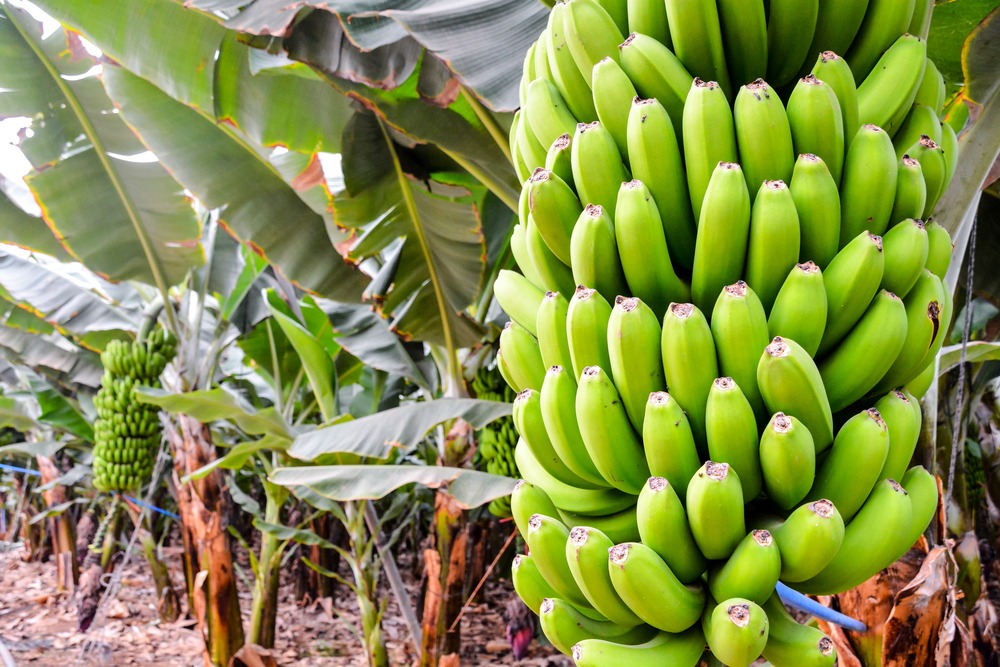Tropic Biosciences, the UK-based startup using gene-editing technology including CRISPR to optimize coffee and banana crops, has raised $10 million in Series A funding from a global group of ag and biotech investors.
The oversubscribed round was led by agrifood tech venture funds Pontifax AgTech and Five Seasons Ventures. New York-based tech VC Tekfen Ventures, Swiss VC Emerald Technology Ventures, and Chinese agrifood accelerator Bits x Bites also participated in the round among others.
Tropic Biosciences is using gene editing technology to address pervasive issues with tropical crops such as disease in bananas and caffeine content in coffee. It intends to sell the saplings and license the proprietary genetics to other propagators.
“Tropic Biosciences is the first company to successfully utilize gene editing in developing high-performing, non-GMO commercial varieties of coffee and bananas with benefits for both consumer wellbeing and grower economics,” said Dr. David Lawrence, former head of R&D at Syngenta and board member of Tropic Biosciences.
In bananas, the company is prioritizing disease resistance. One particular fungus is currently ravaging banana farms worldwide, affecting more than 30% of Asia and Australia’s crops and spreading to Africa and the Middle East according to the Wall Street Journal. Last year, the United Nations allocated $98 million to develop new varieties of banana to increase resistance and stop the disease.
In coffee, Tropic is prioritizing turning off genes that develop the caffeine in coffee, creating a decaffeinated or nearly-decaffeinated coffee that doesn’t require the extensive processing — both chemical and heat — used to remove caffeine today. The startup is also working on traits that increase solubility and make processing instant coffee more efficient.
Tropic Biosciences CEO Gilad Gershon told AgFunderNews that his team is focused on traits that benefit the entire value chain from grower to consumer.
“We want to create traits that offer value to everyone involved: increase yields, appeal to processors by allowing them to increase their margins, and eventually something that appeals to the consumer by providing a better quality product,” he said.
Disease resistance, for example, will benefit growers by reducing their input costs, and consumers by reducing the amount of pesticides applied to the crops. For processors, Gershon said Tropic Biosciences can stack traits on top of disease resistance like increased uniformity.
Tropic Biosciences will focus on field trials for the next year or two, after which it will move toward scaling up propagation.
Though these large, tree-like crops take longer to trial than broadacre crops, Gershon explained that thanks to tissue culture, which essentially enables sapling propagation through cloning, trials can take as little as eight months for bananas.
“That’s the best thing about what we are doing. To take one banana and clone it into a million bananas, we’re talking about one year. It’s inherently a very high throughput process.”
Though this is not the first gene-editing investment for Pontifax — the fund was an early investor in Caribou Biosciences — it is the first investment in technology dedicated to tropical crops.
Ben Belldegrun of Pontifax AgTech told AgFunderNewsthat tropical crops are ripe for venture-backed innovation because they receive little attention from the major players in agriculture that focus more on broadacre, row crops.
The global market size for the two crops is more than $50 billion.
“These are huge markets where not a lot of technology has been introduced,” said Belldegrun.
When thinking about potential partners or acquirers down the road, the list for Tropic Biosciences is outside the norm for ag biotech startups, which could be a good thing, he added. “We’re looking at Dole, Chiquita, Nestle or Strauss — not the names that are constantly coming up.”
Consumer-facing fruit and vegetable brands have been hesitant to publicly invest in biotechnology because of the consumer controversy surrounding biotech in food. Belldegrun confirmed that for this reason, Tropic Biosciences will likely need to show significant traction and reach some level of consumer acceptance before the big names in bananas get involved.
“[Specialty crop brands] are more nervous about the consumer given their business, so they are being much more hesitant… They’re interested in everything but it’s going to take time to open up,” he said.
Tropic Biosciences raised a $1.4 million seed round in 2017 and currently has a team of 17, two of whom have history at Monsanto-acquired startups: Tropic CSO Dr. Eyal Maori co-founded Beelogics, which was acquired by Monsanto in 2011 and Tropic CTO Dr. Ofir Meir was a project manager at Rosetta Green, which was acquired by Monsanto in 2013.
Monsanto led a $25 million Series A round for Pairwise in March — a startup that the agriculture giant, now part of Bayer, developed in-house at Monsanto Growth Ventures. Pairwise is also likely to focus on specialty crops.
Ben Belldegrun and Niccolo Manzoni, founder and managing partner of Five Seasons Ventures, will join Tropic’s board of directors.





